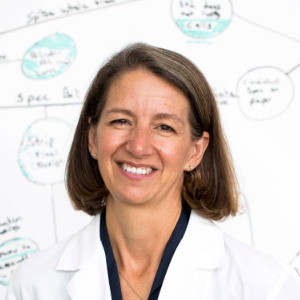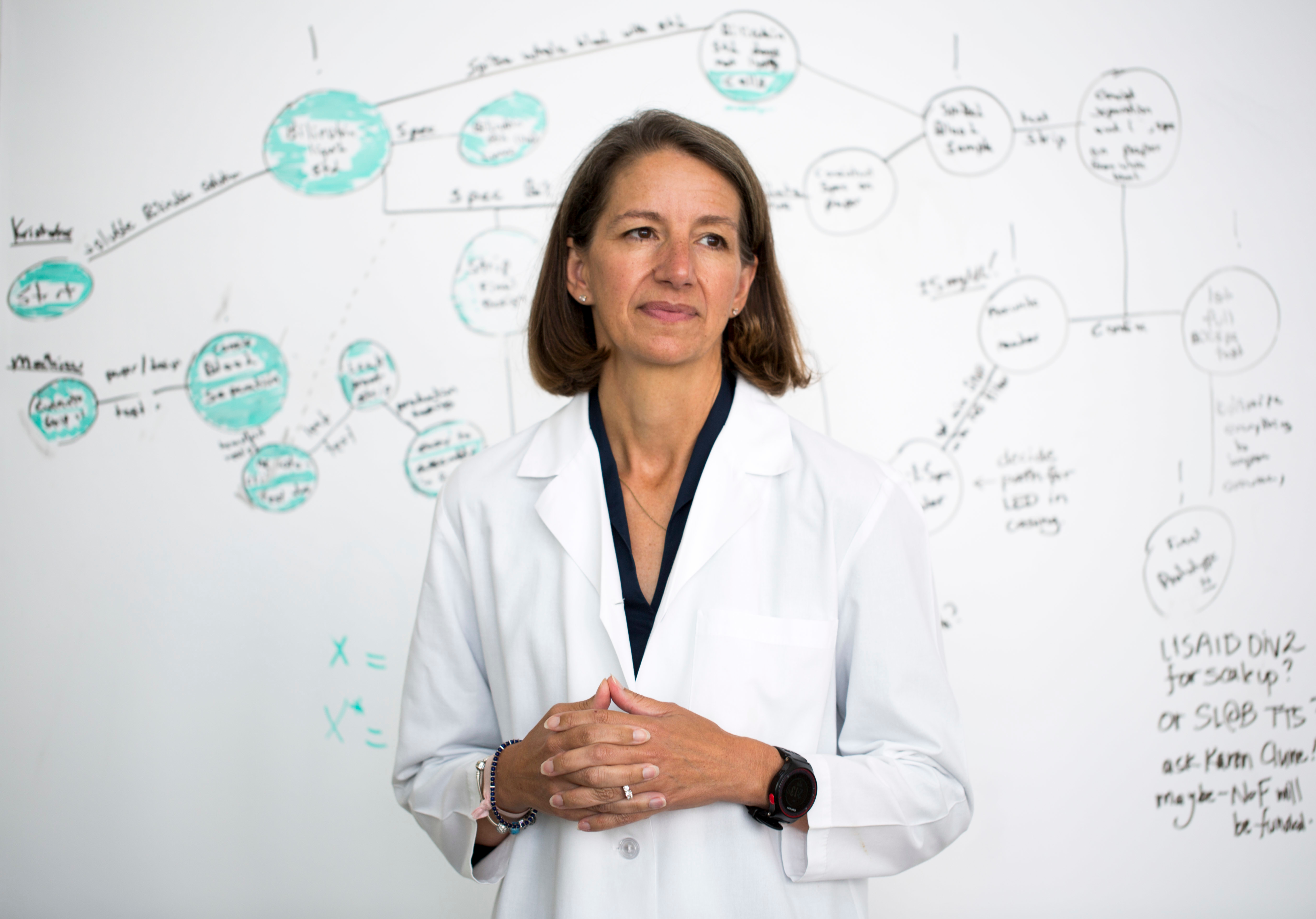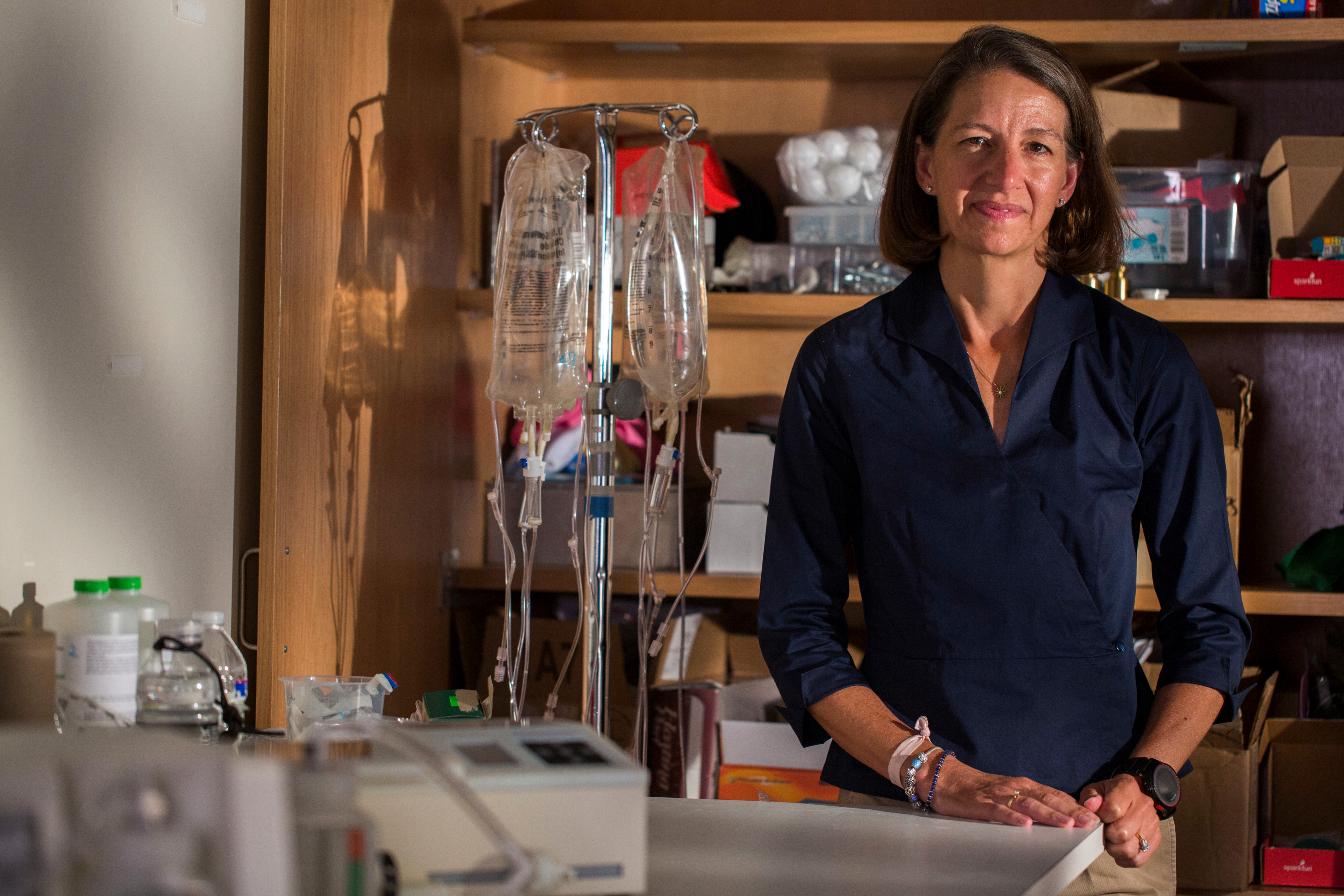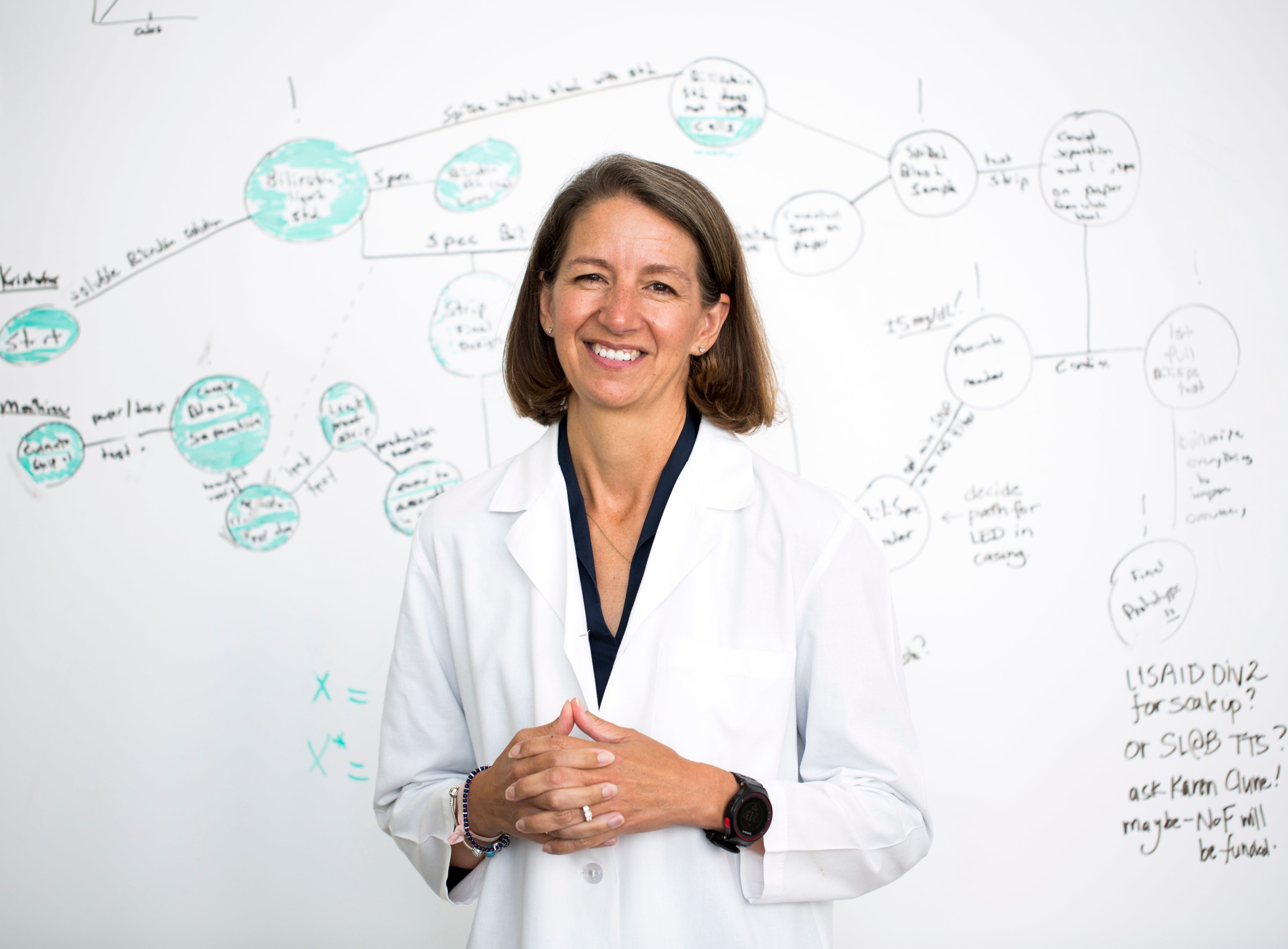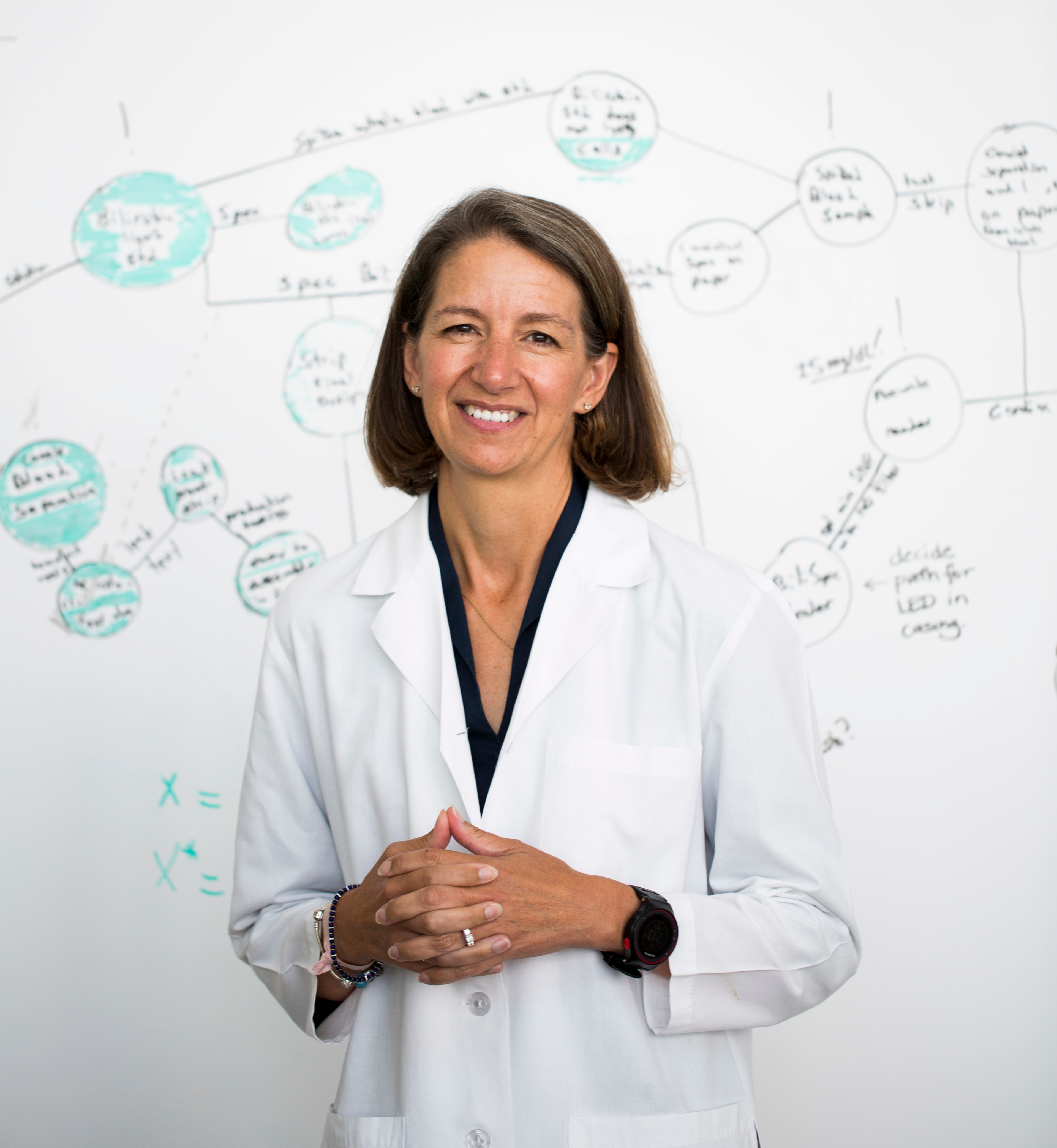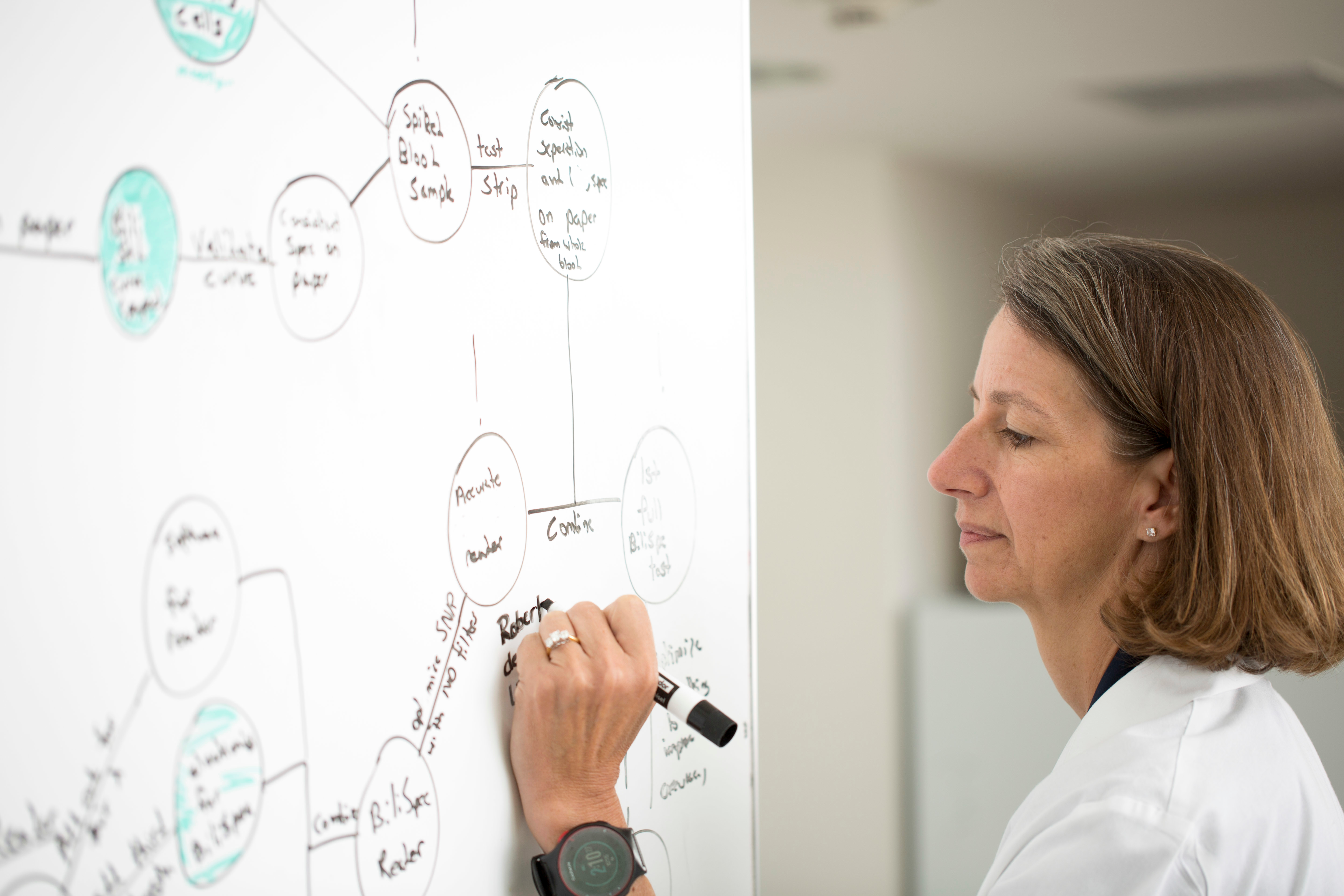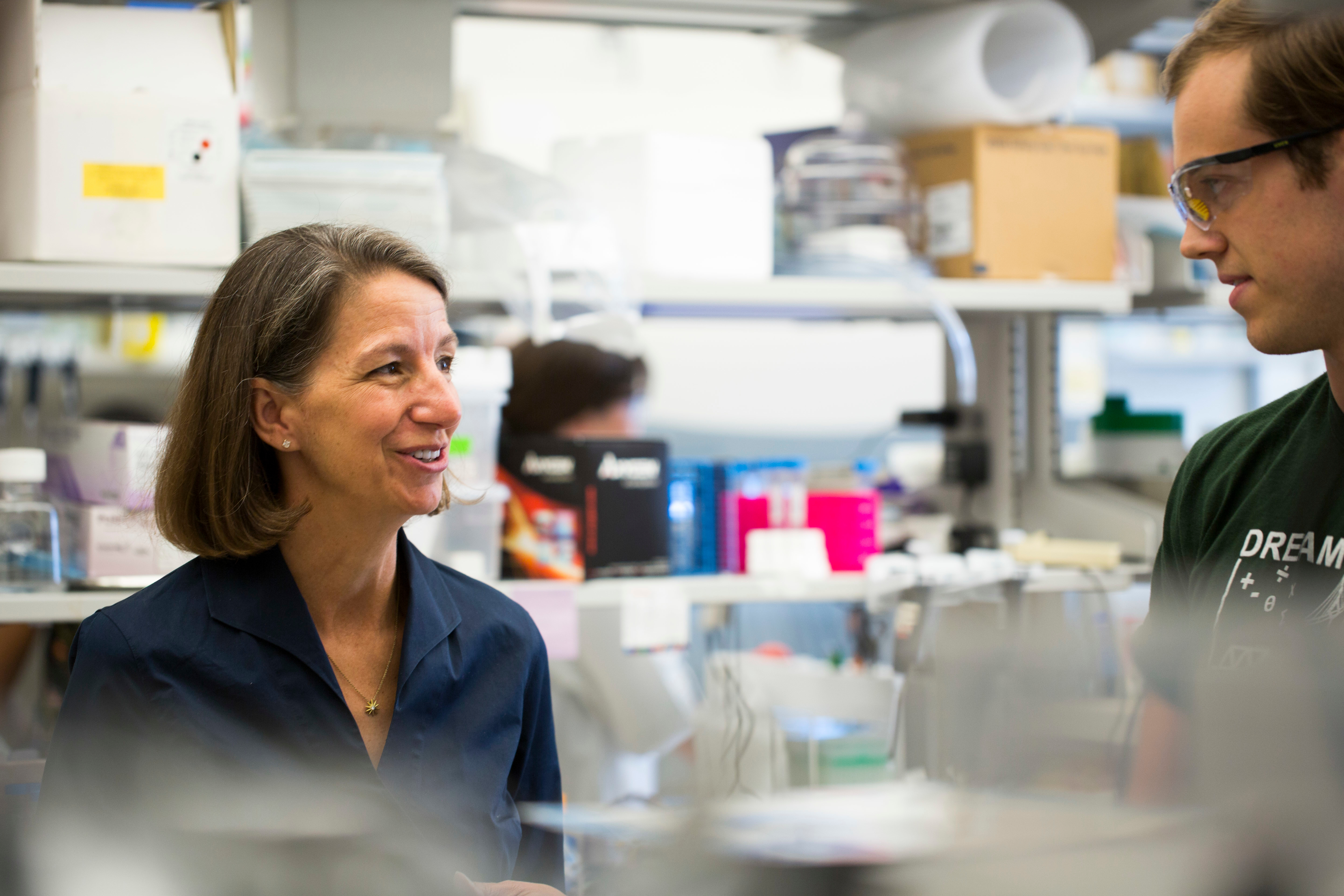About Rebecca's Work
Rebecca Richards-Kortum is a bioengineer addressing global health disparities in low-resource settings by developing point-of-care medical technologies and a new approach to engineering education. Drawing from nanotechnology, molecular imaging, and microfabrication techniques, Richards-Kortum has created numerous low-cost and highly practical medical tools. For example, she and collaborators have invented methods for diagnosis of oral, esophageal, and cervical cancers that overcome the challenges posed by invasive biopsies and multiple follow-up appointments in developing countries. A portable, high-resolution microendoscope enables real-time diagnosis and treatment of cervical cancer in a single visit, and topical application of novel optically active contrast agents sharpens the image contrast between normal and precancerous oral tissue.
Richards-Kortum spends significant time working directly with hospitals, community groups, and rural practitioners in Malawi, Rwanda, El Salvador, Brazil, and elsewhere to ensure her inventions are robust and reliable in local settings. These visits also enable her to identify needs, evaluate the impact of proposed solutions, and gather feedback for improvements. In addition to her own research, Richards-Kortum co-founded Beyond Traditional Borders (BTB), an undergraduate curriculum focused on translating classroom concepts into solutions for global health problems. The curriculum includes coursework in engineering, sociology, psychology, and economics, while a capstone project challenges students to work in multidisciplinary teams to build a technology that responds to a global health need.
New medical technologies created by BTB students include an LED-based phototherapy light for treating jaundice in newborns that can be made for less than $100, and a bubble continuous positive airway pressure machine (bCPAP) for premature infants unable to breathe on their own. The bCPAP decreased mortality rates in a Malawi neonatal ward by 46 percent at a cost of nearly 38 times lower than the standard model. Committed to improving access to quality health care for all the world’s people, Richards-Kortum is not only developing novel solutions but also training and inspiring the next generation of engineers and scientists to address our shared global challenges.
Biography
Rebecca Richards-Kortum received a B.S. (1985) from the University of Nebraska at Lincoln and an M.S. (1987) and Ph.D. (1990) from the Massachusetts Institute of Technology. She was affiliated with the University of Texas at Austin prior to joining the faculty of Rice University in 2005. In addition to joint appointments as the Malcolm Gillis University Professor in the Departments of Bioengineering and Electrical and Computer Engineering, she is the founder (2007) and director of the Rice 360˚ Institute of Global Health and a Howard Hughes Medical Institute Professor (since 2002). She is the author of the textbook Biomedical Engineering for Global Health (2010) and articles in such scientific publications as Science, PLoS, and the American Journal of Tropical Medicine and Hygiene. Her research has led to the development of over thirty patents.
Published on September 22, 2016







